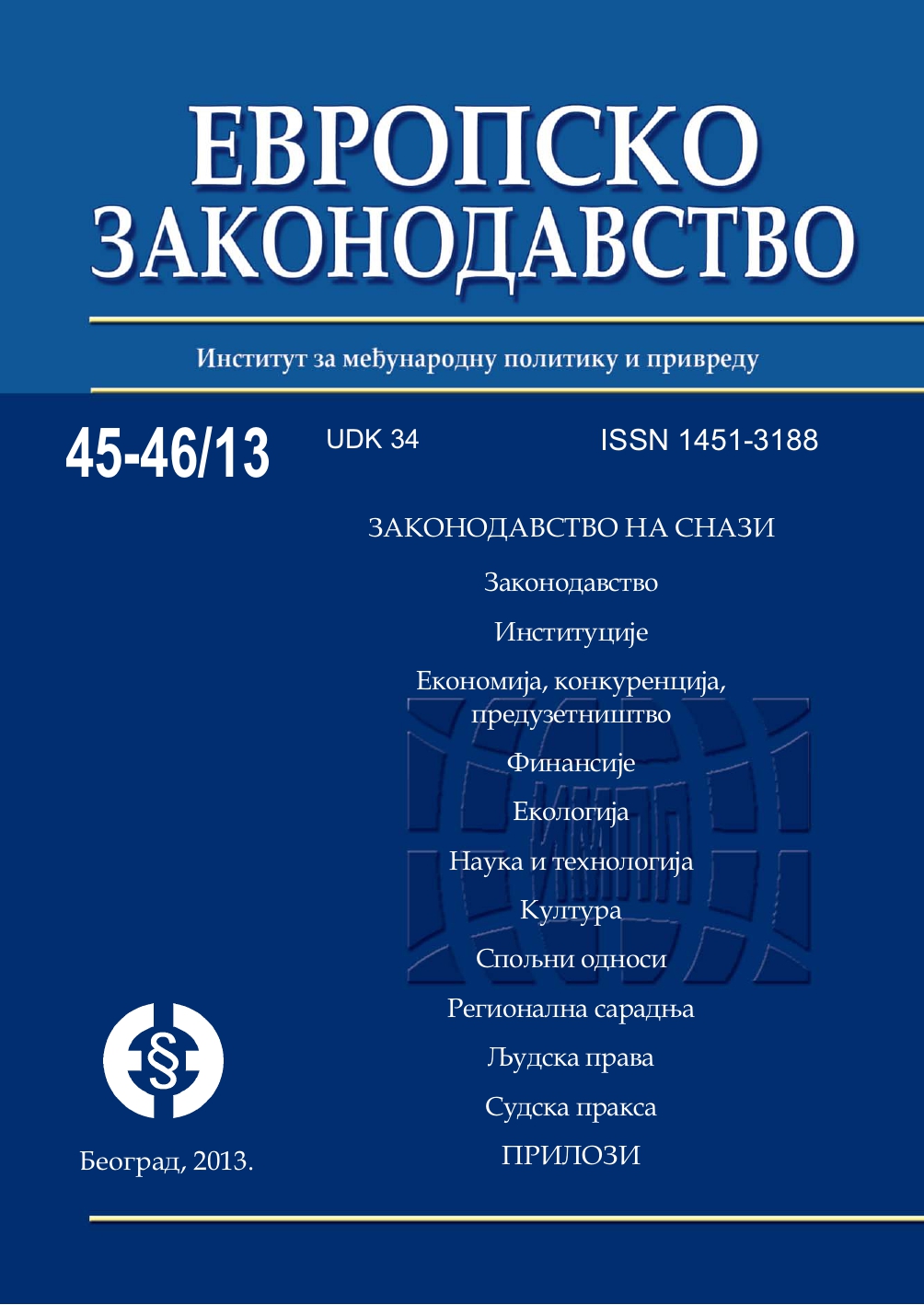Хармонизација националних прописа као услов за чланство у Европској унији
Harmonization of national regulations as a condition for membership in the European Union
Author(s): Marija UroševićSubject(s): EU-Legislation
Published by: Институт за међународну политику и привреду
Keywords: harmonization;Stabilisation and Association Agreement;national legislation;EU acquis;commitment;accession negotiations
Summary/Abstract: In order to prepare for new challenges and obligations in the process of accession to the EU, to fulfil the Copenhagen criteria for membership and to prepare for the accession negotiations, each country has to harmonize its national law with the EU acquis. By signing the Stabilisation and Association Agreement on 29 April 2008, the Republic of Serbia started a new phase in relations with the EU, and for the first time based on contractual obligations. With the intention to accelerate the integration process and show commitment to the process as well as to strengthen the position before envisaged submission of the application for the accession to the EU, the Republic of Serbia started the harmonization of domestic legislation with EU law. Although without a legal obligation, given that the SAA had not yet been signed, an Annual Harmonization Action Plan was adopted in 2004. For the first time, by signing the SAA, Serbia committed to gradual harmonization of domestic legislation with EU law. The EU monitors the process of approximation of legislation and implementation of the laws. The next step towards EU membership is opening accession negotiations that will lead to further harmonization of domestic legislation with EU law.
Journal: Европско законодавство
- Issue Year: 2013
- Issue No: 45-46
- Page Range: 22-38
- Page Count: 17
- Language: Serbian

